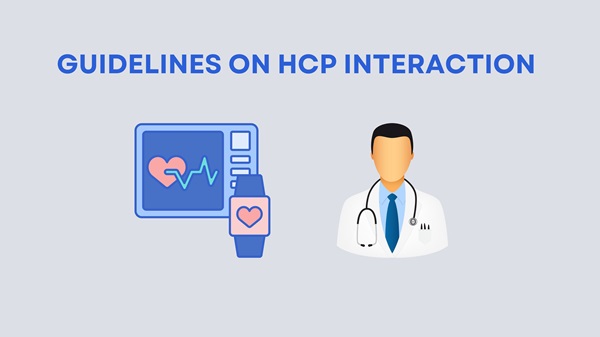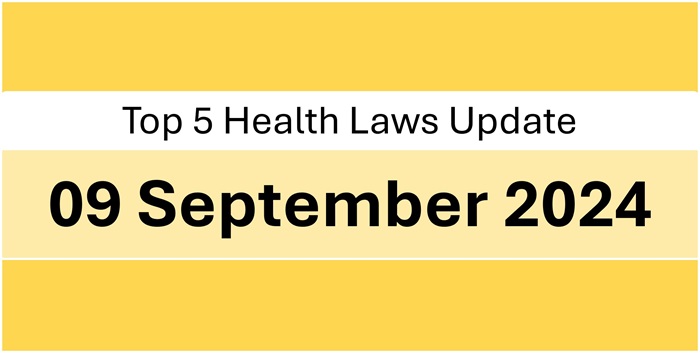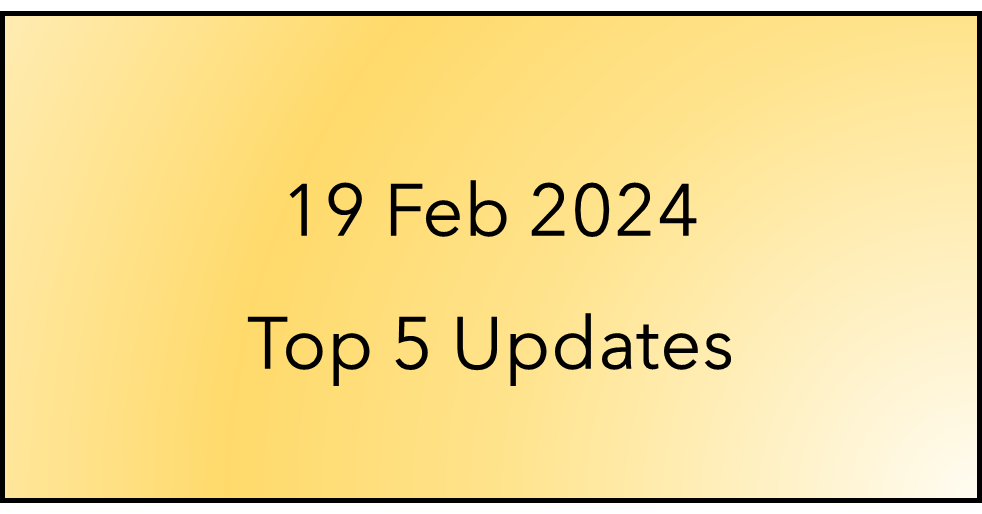India’s Department of Pharmaceuticals (DoP), which is the administrative department responsible for the formulation and implementation of policies relating to drugs and medical devices, has published a new set of guidelines called the ‘Uniform Code for Marketing Practices in Medical Devices’ or UCMPMD. These guidelines seek to lay down the ethical framework of interaction of medical device industry with healthcare practitioners (“HCPs”) and standards for promotion and marketing of medical devices in India.
The UCMPMD borrows heavily from other industry codes in India, namely the Uniform Code of Pharmaceutical Marketing Practices (UCPMP), and international codes such as the Association of the British Pharmaceutical Industry (ABPI) Code of Practice for the Pharmaceutical Industry. The key similarity being that it is very much a self-regulating governing code, which means that the administration of the code will be done by medical device industry association(s) in India. It is not a codified law or a legal code in a strict sense. However, any decision (or lack of decision) of an industry association in the adjudication of a complaint of breach of UCMPMD is appealable to a body comprising of representatives of DoP, which makes the UCMPMD a quasi-legal code that appears like a law but isn’t a law. The DoP, however, maintains that the medical device industry should strictly comply with UCMPMD.
In the paragraphs below, we have summarized key provisions of UCMDMP and the consequences of a breach of UCMPMD.
Key Highlights of UCMPMD
Self-declaration of compliance with UCMPMD and disclosure of expenditure on marketing activities to DoP: Starting 2025, before the end of May every year, the executive head of the every medical device company will have to submit a self-declaration in the prescribed format, which will effectively state that the business was conducted in compliance with UCMPMD in the previous financial year (April – March) and that the business will continue to operate in compliance with UCMPMD in the coming financial year as well. The self-declaration also contains an undertaking that the company will ‘extend all required assistance’ to authorities for the enforcement of the code. Along with the self-declaration, the company will also have to provide a statement of disclosure of expenditure incurred in the previous financial year towards sponsorship of third-party and internal HCP educational and training programs, and in the distribution of free evaluation samples to HCPs.
Extending travel and hospitality to HCPs: The code does not permit the medical device industry to sponsor travel and hospitality of HCPs except in limited circumstances, which are (i) when the HCP is a speaker in medical education or professional development program; or (ii) when HCP is a speaker or participant in advanced clinical training program conducted outside India, which is specifically approved by the DoP. It is possible to take an interpretation that a medical device company should be able to offer travel and hospitality to HCPs for participating in its own product training program organised in India. However until further clarity comes from the DoP, there will be a question mark over extension of travel and hospitality to HCPs for participating in training programs in India.
Provision of modest meals during events: The UCMPMD prohibits hospitality which is of the nature of hotel stay, expensive cuisine, and resort accommodation. In other words, UCMPMD prohibits extravagant or excessive hospitality. Therefore, the provision of modest meals and other customary extension of courtesy at the event in the form of modest alcohol, should not be prohibited by UCMPMD.
Sponsoring third-party educational programs: The code permits the medical device industry to sponsor third-party educational programs, as long as the educational programs are conducted by specified entities. The specified entities are medical colleges, teaching institutions, universities, hospitals, professional associations of HCPs, academic and research institutions such as NIPER, ICMR, DBT, CSIR laboratories, trusts and associations of the medical device industry.
Conducting internal training and education programs (Product or hands-on training): The medical device industry is permitted to conduct training and education programs of its own, and invite HCPs to these programs. However, before conducting training and education programs, the industry has to ensure that it has put in place a guideline on expenditure incurred for such programs. At the time of conducting the program, it has to comply with the guidelines.
Selection of speakers and attendees for educational and training programs: The code requires the medical device industry to have a well-defined policy and process for (i) selection of speakers and participants for its training and education programs specifically and (ii) incurring expenditure on training and education programs.
Disclosure of funding towards training and education programs: The medical device industry is expected to share details of all education and training events on its website, including expenditures incurred on the events conducted by them. The expression ‘expenditure’ includes all expenses incurred for the event including sponsorship, travel, lodging, hospitality, advertisement, stalls, souvenirs etc. There is no format for disclosure that has been provided by DoP for disclosure on the website.
Engaging HCPs as consultants and advisors: The UCMPMD allows the medical device industry to engage HCPs as consultants and advisors, provided the following conditions are met: (a) it should be for bona fide research services (b) it should be documented by a consultancy agreement and (c) there should be a consultancy fee or honorarium payment under the arrangement. The scope of expression ‘research’ is not defined, and should cover any technical and professional service which is within the scope of education and experience of the HCP.
Extending travel and hospitality to HCPs who are consultants: The UCMPMD is silent on whether travel and hospitality may be offered to HCPs who are consultants or advisors in general. However, if an HCP is a consultant and is speaking at an educational event sponsored by the industry, then travel and hospitality may be offered to such consultants.
Providing monetary grants or cash to HCPs: The code prohibits the medical device industry from providing monetary grants or cash to HCPs. However, it is silent on whether monetary grants may be paid to hospitals and other institutions and entities.
Giving of gifts: It is not permissible to give gifts or pecuniary benefits or advantages of any kind to HCPs, either directly by the medical device industry or indirectly by distributors, wholesalers, or retailers.
Promotion of medical devices: The code requires the medical device industry to promote medical devices only after receiving marketing approval, and the promotion of medical devices should be consistent with the documents submitted for obtaining marketing approval, specifically the instruction for use (IFU) or the directions for use (DFU). The promotional material given to HCPs ought to contain a declaration that “additional information is available on request”, and whenever requested such information should be made available to HCPs within a reasonable timeframe by ‘authorized sources’ of the company. The names of the HCPs should not be used for promotional purposes. In case a company pays for, or arranges, the publication of any promotional material in any journal, then it should not appear as an editorial and it ought to meet the minimum requirements for promotional material within UCMPMD.
Claims of safety of medical device: The UCMPMD states that the words ‘safe’ or ‘safety’ should not be used without qualification and that the medical device industry should not categorically state that a medical device has no adverse consequences.
Use of brand names: The UCMPMD states that brand names of medical devices should not be used for comparison unless prior consent of the owner of the brand name has been obtained.
Brand Reminders: UCMPMD allows the medical device industry to provide brand reminders to the HCPs, which ought to be limited in terms of its use in healthcare settings only and should not have independent commercial value for the HCP. Some of the permitted brand reminders are: books, calendars, diaries, journals (including e-journals), dummy device models etc. The value of a brand reminder must not exceed ₹1,000 per item. There is no annual limit on the number of such reminders that can be given to HCPs.
Use of names and photographs of HCPs: The UCMPMD restricts the medical device industry from using names and photographs of HCPs in promotional material.
Changes in employment agreement of sales representatives: The UCMPMD states that the employment agreement between the medical device industry and sales representatives who interact with HCPs personally (also referred to as medical representatives) should contain a clause that requires them to know that the HCPs are required to ensure compliance with UCMPMD.
Engagement of marketing agencies: Any external agency hired to support the medical device industry for promotion, marketing and sales of medical devices ought to have sound working knowledge and must comply with all provisions of the UCMPMD.
Provision of Free Samples or Evaluation Products: The medical device industry may provide free evaluation samples of medical devices to qualified HCPs. The free samples distributed by companies cannot exceed 2% of their annual domestic sales. These samples must be provided in reasonable quantities, and the industry is required to maintain detailed records of all samples distributed, including date, quantity, value, etc. for at least five years. Additionally, all evaluation samples must be clearly labelled as ‘Evaluation Sample – Not for Sale’ or with a declaration conveying the same meaning.
Provision of Demo Products: The medical device industry may provide demo products to HCPs. The industry is required to maintain detailed records of the quantity and value of the device, date of supply to HCP, date of receipt from HCP etc. for at least five years. Demo products are not intended for use on the patients. They may be used by HCPs for patient awareness and education.
Is UCMPMD enforceable as a law?
India’s Supreme Court has affirmed that for any circular, order, notification or similar direction issued by any governmental department to be considered enforceable, it has to be issued under the scheme of existing legislation.
The UCMPMD is neither a legislation nor has it been issued under the scheme of any existing legislation. Therefore, it should not be considered enforceable as a law in India. In other words, no government department or authority including the DoP should be able to take any direct action for an alleged breach of the UCMPMD, if an importer, manufacturer or marketer of medical devices is unable to comply with UCMPMD.
Is giving the Self-Declaration mandatory? What are the consequences of not giving the self-declaration?
Since UCMPMD is not a law, there should not be any adverse legal consequence for not giving the self-declaration.
However, if an entity is part of a medical device industry association, then the association may suspend or expel the entity from the association for failing to submit the undertaking.
The association and DoP may also take other steps, such as reprimanding the entity and requiring a full apology to be published.
If the self-declaration is submitted, but the entity fails to comply with UCMPMD, then what happens?
In general, whether the entity gives the self-declaration (undertaking) or not, the consequences of non-compliance with UCMPMD will not change. These consequences are:
- Suspension or expulsion of the entity from the concerned pharmaceutical or medical device association of which the entity is a member;
- Reprimand of the entity;
- Requiring the entity to publish a full apology;
- Requiring the entity to issue a corrective statement;
- Requiring the entity to recover any sums or articles given or received in contravention of the UCMPMD;
- Recommending the matter of breach to the concerned governmental body having appropriate jurisdiction.
Can action be taken under S. 405 of the Companies Act, 2013 against a medical device company for failure to disclose marketing expenditures?
Section 405 of the Companies Act, 2013 applies to such orders that are notified in Official Gazette. The UCMPMD is not an order notified in the Official Gazette. Further, any action taken under the Companies Act can be for companies regarding matters which are strictly covered under the provisions of the Companies Act and therefore, there should not be any legal consequence of failing to disclose marketing expenditure as required by DoP under UCMPMD.
Conclusion
The UCMPMD has brought much-needed clarity on several issues that had become a pain point for the industry when the DoP had extended the application of the pharmaceutical marketing code (UCPMP) to the medical device industry. While the UCMPMD is far from perfect, the medical device industry will prefer it than being subject to the promotion and marketing standards of the pharmaceutical industry, which sometimes results in absurdity.
The UCMPMD is expected to undergo changes with time, however until then, it remains the official guidance on standards of interaction between HCPs and the medical device industry in India. Unfortunately, the question mark over its legality and legal enforceability may discourage the medical device industry from adopting it in full, especially on contentious issues such as paying for travel and accommodation of HCPs who accept the invite to attend internal product training and therapy awareness programs.



